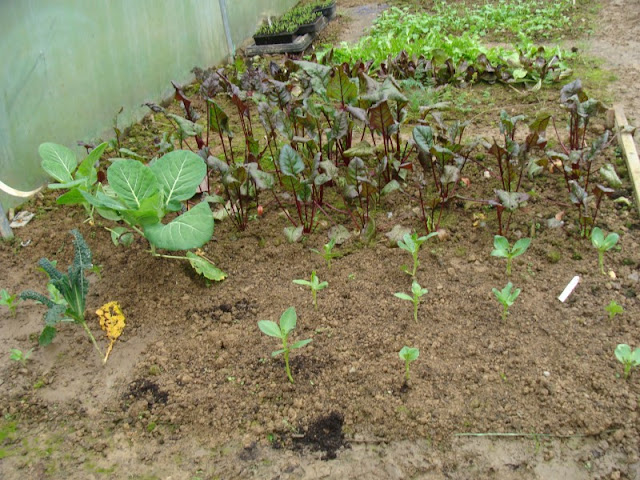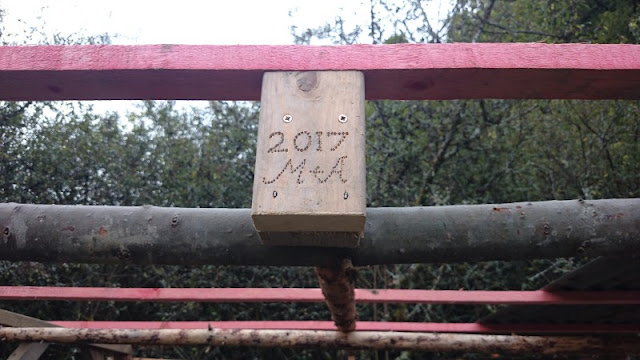 |
| Christmas Eve on a mountain in the Lake District |
In the last year I have asked a woman to marry me, been accepted, married her, bought a house with her, moved in and got her pregnant. No one can accuse me of dragging my feet.
What will the next year bring? Well if all goes to plan Anna and I will be joined by a third person, a tiny screaming bundle of fun, in the early part of June. And that will be enough life changing moments for one year, thank you very much! (Let's try to forget the fact the UK is wrenching itself out of the European Union just a couple of months beforehand.)
 |
| A tiny froglet |
Some other edited highlights of my 2018...
- in January becoming coordinator of Edible Mach community project (1 day a week contract)
- in February my Suzuki Jimny 4x4 finally rusted beyond repair
- in June concluded a year of teaching primary school kids how to grow veg with a cooking event where we cooked and ate what they'd grown
- in July and August interviewing and hiring our first three employees of Mach Maethlon to run the “Pathways to Farming” project
- in September a honeymoon in France where we first discovered Anna was pregnant (joy tempered by the realisation she should therefore stay off the French wine and soft cheeses!)
- in October attending Pilsdon's 60th anniversary party, playing keyboard to accompany the wonderful play acted by residents
- in November joining a peaceful protest outside Barclays Bank in Piccadilly Circus to raise awareness of their dirty fossil-fuel investments
- also in November joining a local and very active Extinction Rebellion affinity group
- in December helping to petition Machynlleth council leading to them declaring a Climate Emergency
I also grew a lot of vegetables and sold them through the veg-bag scheme, which incidentally we've changed to all-year-round to help retain customers, relying on organic wholesale throughout the winter months.
I also grew a lot of vegetables and sold them through the veg-bag scheme, which incidentally we've changed to all-year-round to help retain customers, relying on organic wholesale throughout the winter months.
I've carried on learning Welsh, teaching piano, doing paid gardening work, and dabbled with learning to grow vegetable seeds commercially through the Gaia Foundation.
So 2018 has been very much a memorable year, all told.
Wishing you all a very happy New Year and may 2019 somehow not be a complete disaster for all us Brits! Roll on a second referendum...
So 2018 has been very much a memorable year, all told.
Wishing you all a very happy New Year and may 2019 somehow not be a complete disaster for all us Brits! Roll on a second referendum...




















































